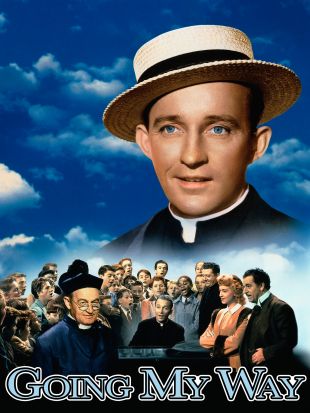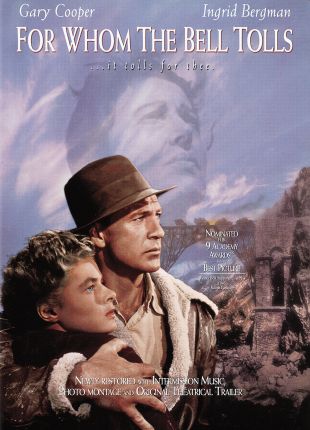Buddy DeSylva, also sometimes known as B.G. DeSylvia, was best known to the public in the entertainment business as a songwriter, responsible for such standards as "California, Here I Come," "Button Up Your Overcoat," and "Look for the Silver Lining," and such hit musicals as the collegiate-perennial Good News. He was also a movie producer, however, and served as the production chief for Paramount Pictures in the '40s.
DeSylva was unusual among songwriters and studio executives for actually having been raised in California, and also for having -- however briefly -- attended college. He was born in New York City in 1895, but was brought to California as a child and raised there, and he also was enrolled at USC for a short time. He was bitten by the showbiz bug, however, and moved to New York with the help of Al Jolson, who also established DeSylva as a successful songwriter in his early '20s by using some of his songs in his 1918 show Sinbad. DeSylva was one of the most successful songwriters in the country during the '20s, principally in partnership with composer Ray Henderson and lyricist Lew Brown; a number of their shows were also transferred to the screen, including Good News in 1930, though the latter has been supplanted by the 1947 color remake. At the start of the '30s, DeSylva decided to try his hand at producing, and while he had a few successes on Broadway, it was on the other coast that the money began really rolling in, through his success with Shirley Temple vehicles such as The Littlest Rebel and Poor Little Rich Girl. He always had a special entrée at Paramount and became the studio's chief of production at the start of the 1940s. In that position, he helped to oversee the studio's rise to prominence through the fostering of high-quality work from established directors such as Mark Sandrich and Leo McCarey (and later, writer-turned-filmmaker Billy Wilder, who went on to become a mainstay of the studio for more than a decade). If DeSylvahad a blind spot, it was his antipathy during this period to director, Preston Sturges, who was forced out of Paramount by the mid-'40s, even as the studio continued its rise . Overall, however, his time at Paramount is considered a success, with the studio winning its first Best Picture Oscar (for Going My Way) during his tenure. DeSylva also co-founded Capitol Records and, had he not been cut down suddenly by a heart attack at age 55, would surely have been a major player in the entertainment world well into the '60s and beyond.


